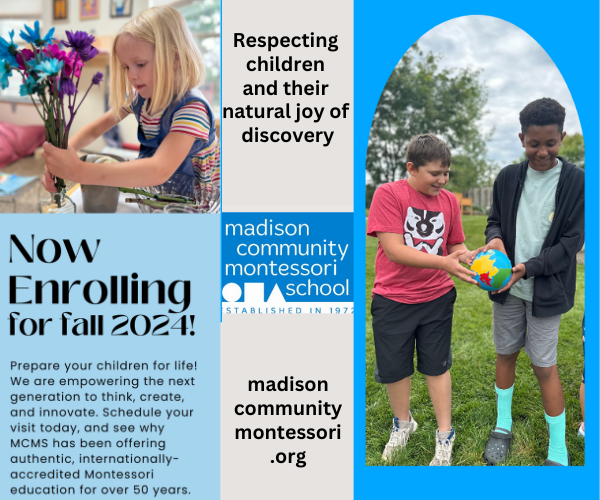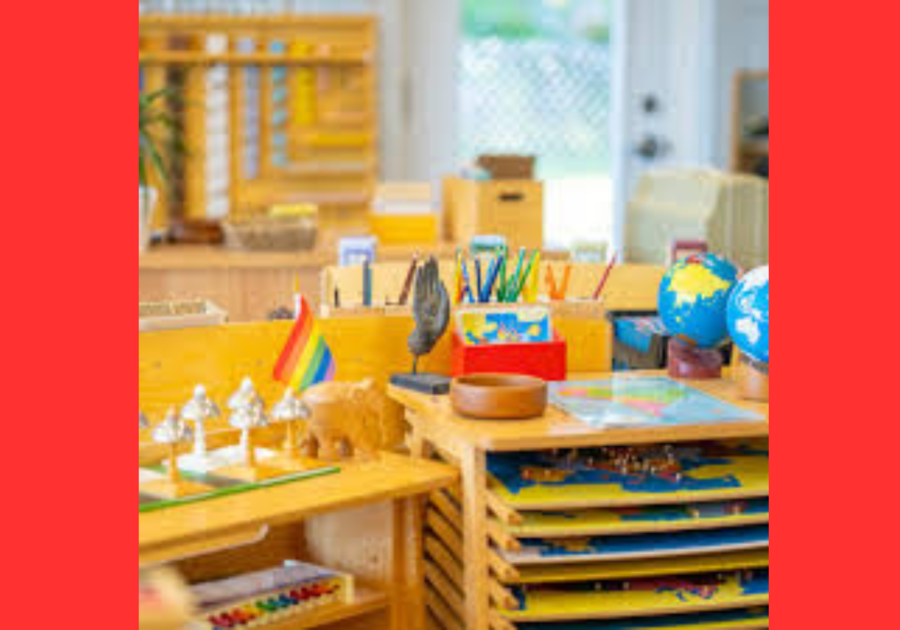My favorite story to tell people about my fascination and connection with Montessori education - which continues at Madison Community Montessori School (MCMS) -- is the one about the crystal grapes.
When I was a child, my grandmother, who collected Waterford crystal pieces, had a mesmerizing item added to her collection one Christmas: a cluster of perfectly formed crystal grapes, all glittering facets and gold curlicued stems spilling onto a glass plate. I was warned very explicitly not to touch anything, especially that sparkling fruit. There was a very distinct line drawn in the sand between what was appropriate for careful adults, and what was acceptable for careless children.
Fast-forward to 2012, my first day in an AMI (Association Montessori Internationale) Montessori classroom. Small children, as young as 2.5 or 3 years old, were polishing beautiful silver objects. They were carrying real, earthen-ware plates, pouring milk out of glass pitchers and spooning grains from porcelain bowls. I was all at once charmed, astonished and envious. The little girl who wanted to touch those crystal grapes all those years ago merged with the adult, and I suddenly realized that young children were capable of so much, if given a carefully prepared environment and trust and respect from adults.
When a family is interested in learning more about this method of education, one of the first things I explain to them is a peculiar concept: the term “Montessori” has never been copyrighted or trademarked, so a wide range of practices can be found in schools that boast Montessori in their name. It is a label given to thousands of schools and daycares across the country, whether they follow the method or not. This can be incredibly misleading for parents who are looking for an authentic Montessori experience for their child.
There are two main interpretations of the Montessori philosophy: AMI (Association Montessori Internationale) and AMS (American Montessori Society). AMI was established by Maria Montessori and her son, Mario, in 1929 and has international headquarters in Amsterdam. In AMI schools, Montessori philosophy and curriculum are implemented in a way that is consistent with the original approach of Maria Montessori. The Montessori materials are used precisely in the manner used by Dr. Montessori without deviation or extensions, preserving what proponents of this interpretation believe is the purity of the method.
MCMS is proud to be an AMI-recognized school, one of only a small handful in the state of Wisconsin. All of our guides complete a year-long, vigorous, masters-level course of training, which ensures that they possess deep and rich knowledge of stages and characteristics of childhood development, the guiding principles of the Montessori approach to education, how to observe children, the purposes and progression of the materials, how to connect children with the materials, etc. None of these can be easily obtained through other available training methods such as a two-week online Montessori training. A school applies to become an AMI-Montessori school annually. To receive an AMI Certificate of Recognition, a school must be in compliance with all of the AMI standards, the most significant of which is that there is an AMI-trained lead teacher at the appropriate age level in each classroom. Other standards include availability of the complete set of Montessori materials, number of children present, 3-year mixed-age classes and extended work periods of 3 hours.
When Montessori educators embrace an authentic Montessori philosophy, they are likely to design a practice that guides them towards personal transformation. The inner work of self-reflection that the Montessori guide is tasked with is also expected from the Montessori student, whose identity is strengthened and dignified as they reflect on the choices they make with work and in the classroom community. The opportunity children have in the classroom to solve problems and build critical thinking skills will ultimately be needed to tackle issues outside of the classroom and in the world - the value of which cannot be understated.
Learn more about MCMS and how to visit, apply, and enroll at: https://www.madisoncommunitymontessori.org/




